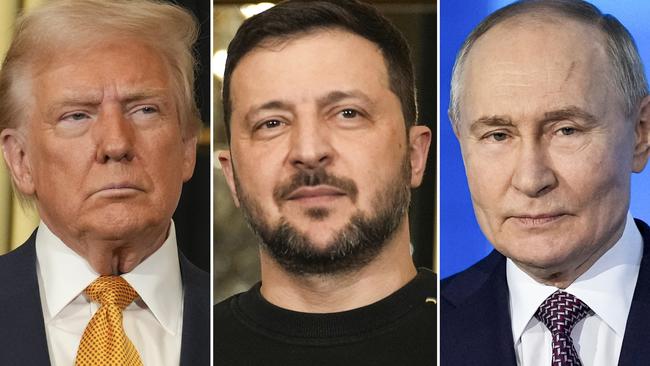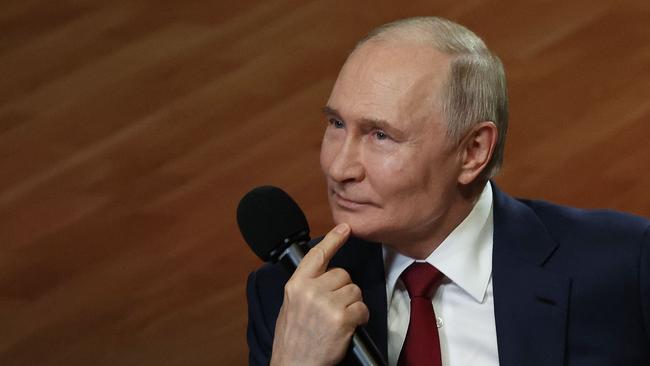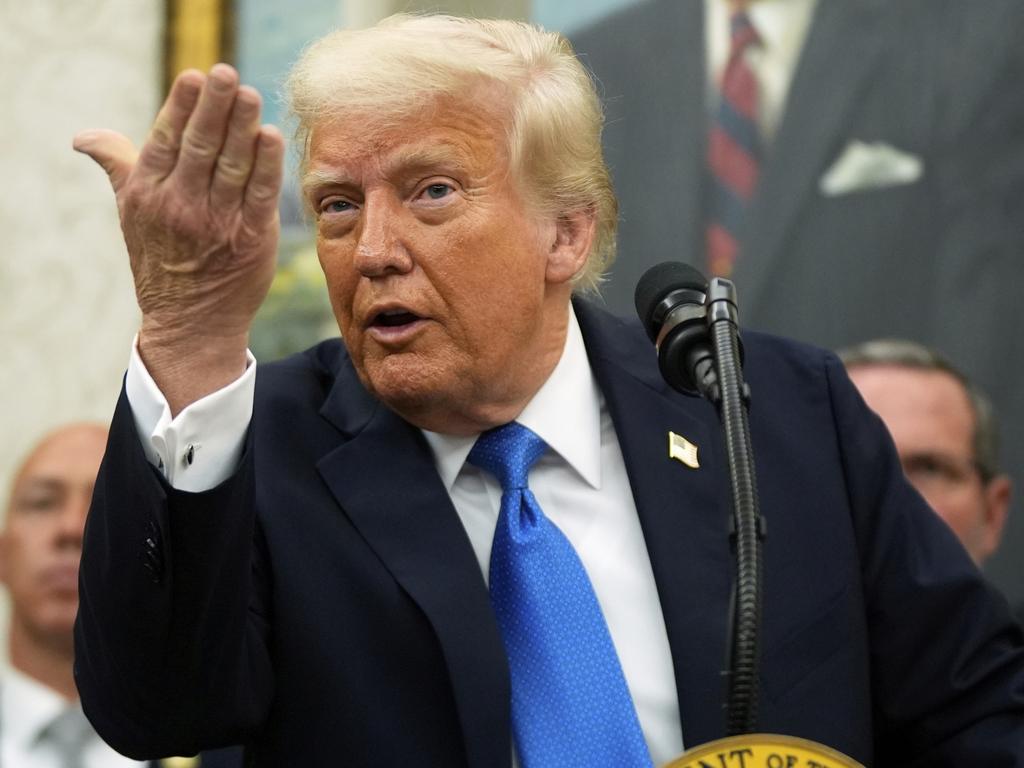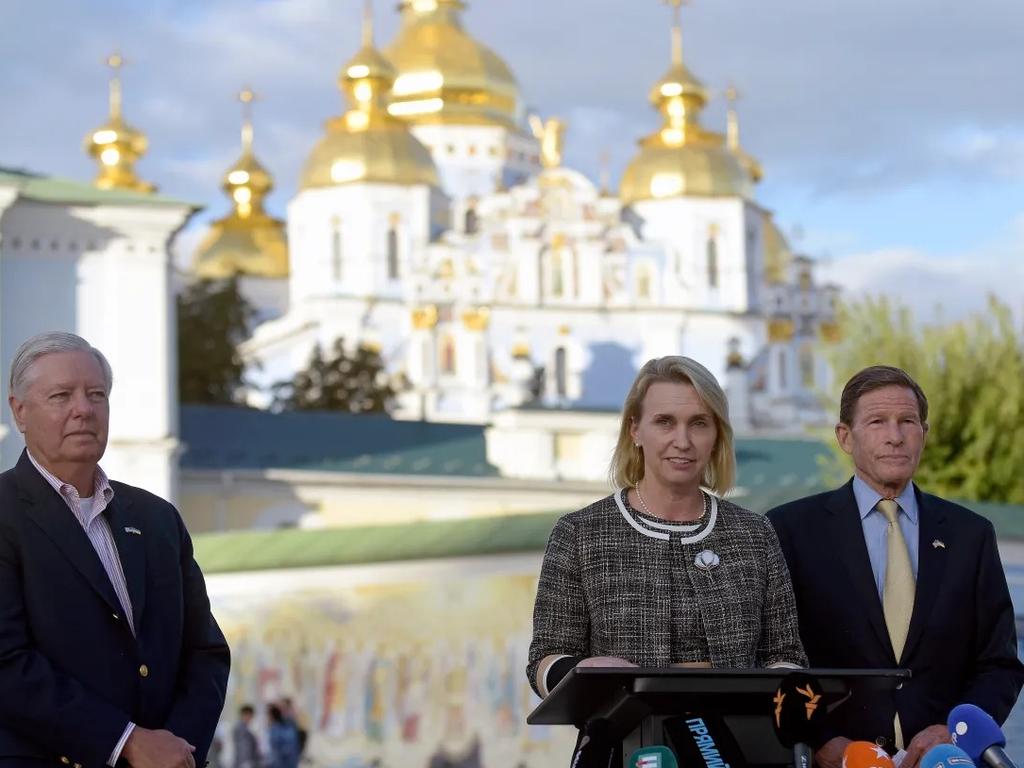Putin ‘isn’t ready to end Ukraine war’ Trump tells European leaders
Donald Trump for the first time has told European leaders Vladimir Putin isn’t ready to end the war because he thinks he is winning.

On a call Monday, President Trump told European leaders that Russian President Vladimir Putin isn’t ready to end the war because he thinks he is winning, according to three people familiar with the conversation.
The acknowledgment was what European leaders had long believed about Putin – but it was the first time they were hearing it from Trump. It also ran counter to what Trump has often said publicly, that he believes Putin genuinely wants peace.
The White House declined to comment and referred to Trump’s social-media post on Monday about his conversation with Putin. “The tone and spirit of the conversation were excellent. If it wasn’t, I would say so now,” he said.
Although Trump appears to have come around to the idea that Putin isn’t ready for peace, that hasn’t led him to do what the Europeans and Ukrainian President Volodymyr Zelensky have been arguing he should do: double down on the fight against Russia.
Trump had held an earlier call with European leaders on Sunday – a day before his two-hour conversation with Putin. He had indicated then that he could impose sanctions if Putin refused a ceasefire, according to people familiar with the conversation.
By Monday, he had shifted again. He wasn’t ready to do that. Instead, Trump said he wanted to proceed quickly with lower-level talks between Russia and Ukraine at the Vatican.
The call Monday included Zelensky, French President Emmanuel Macron, German Chancellor Friedrich Merz, Italian Prime Minister Giorgia Meloni and EU Commission President Ursula von der Leyen. It was in part the culmination of a European diplomatic offensive that had started some 10 days earlier, aimed at getting Trump to put pressure on Putin.

While the effort ultimately didn’t succeed in getting Trump to do that through additional sanctions, Europeans saw some upside to the outcome. The process had helped clarify for everyone, including Trump, where Putin stood: He is unwilling to halt the war at this stage. And for the Europeans, it helped underscore that it was now largely up to them to support Ukraine. Europeans don’t believe the Trump administration will stop U.S. weapons exports as long as Europe or Ukraine pays for them, the people said.
“This isn’t my war,” Trump told reporters on Monday after his Putin call. “We got ourselves entangled in something we shouldn’t have been involved in.” Trump had indicated in a call with European leaders Sunday – which included Macron, Merz, Meloni and U.K. Prime Minister Keir Starmer – that he would dispatch Secretary of State Marco Rubio and special envoy Keith Kellogg to talks that are now expected to take place at the Vatican. On Monday, Trump appeared to be noncommittal about a U.S. role, according to one of the people briefed on the call.
Some of the Europeans on the call Monday insisted that the outcome of any talks at the Vatican must be an unconditional ceasefire. But Trump again demurred, saying he didn’t like the term “unconditional.” He said he had never used that term, although he used it when calling for a 30-day ceasefire in a post on his Truth Social platform on May 8. The Europeans eventually agreed to drop their insistence on the adjective.
Europe’s diplomatic offensive to get Trump to pressure Russia escalated when Merz, the conservative German chancellor, took office earlier this month. Merz has been much more willing to confront Putin than his left-leaning predecessor, Olaf Scholz. More important, Merz’s coalition helped amend Germany’s constitution to allow the country much greater latitude in borrowing to spend on the military and support for Ukraine.
On May 10, Merz, Macron, Starmer and Polish Prime Minister Donald Tusk paid an impromptu visit to Zelensky in Kyiv. They urged him to go along with what Trump wanted, to expose Putin’s unwillingness to end the war. They then used Macron’s cellphone to call Trump from Zelensky’s official residence, telling him Europe and Ukraine were fully behind his call for a 30-day ceasefire. The Europeans publicly threatened new sanctions against Putin if he didn’t accept the ceasefire.
Putin responded to the rising pressure from Europe and Washington by proposing the first direct negotiation with Ukraine in three years. Trump seized on the offer, even at one point suggesting he could go to Turkey to join the talks.
A meeting took place in Istanbul within days, but Putin didn’t attend. He dispatched lower-level representatives who repeated demands that Ukraine deems unacceptable.
After Putin’s no-show in Istanbul, the Europeans again pressed Trump to consider putting more pressure on the Russian leader. They approved modest new sanctions against Russia but continue work on a stronger package of measures. Trump announced he had set up a call with Putin, saying peace prospects could only be advanced if the U.S. and Russia leaders spoke.
When Trump spoke Sunday with European leaders, ahead of that Putin call, he signalled the U.S. might join Europe in sanctioning Russian energy exports and bank transactions. Sen. Lindsey Graham (R., S.C.), a close ally of Trump, said Wednesday he had gathered 81 co-sponsors for a bill that would significantly ratchet up energy and other sanctions on Moscow.
That Sunday call included some of Trump’s signature off-the-cuff style, mixing praise and criticism of European leaders. He complimented Merz on his beautiful English. “I love it even more with your German accent,” he said, according to one person on the call.
At another point, he digressed into a broadside against Europe’s migration policies. Trump said out-of-control migration was bringing their countries to the “brink of collapse.” Macron, who has the longest relationship with Trump, asked him to stop. “You cannot insult our nations, Donald,” said Macron, according to the person on the call.
The tone, however, was positive overall, said the people familiar with the call. It left some with the impression that Trump just might support fresh sanctions if Putin didn’t agree to a ceasefire. But those hopes were dashed a day later.
The talks in the Vatican are expected to start in mid June.
Dow Jones





To join the conversation, please log in. Don't have an account? Register
Join the conversation, you are commenting as Logout